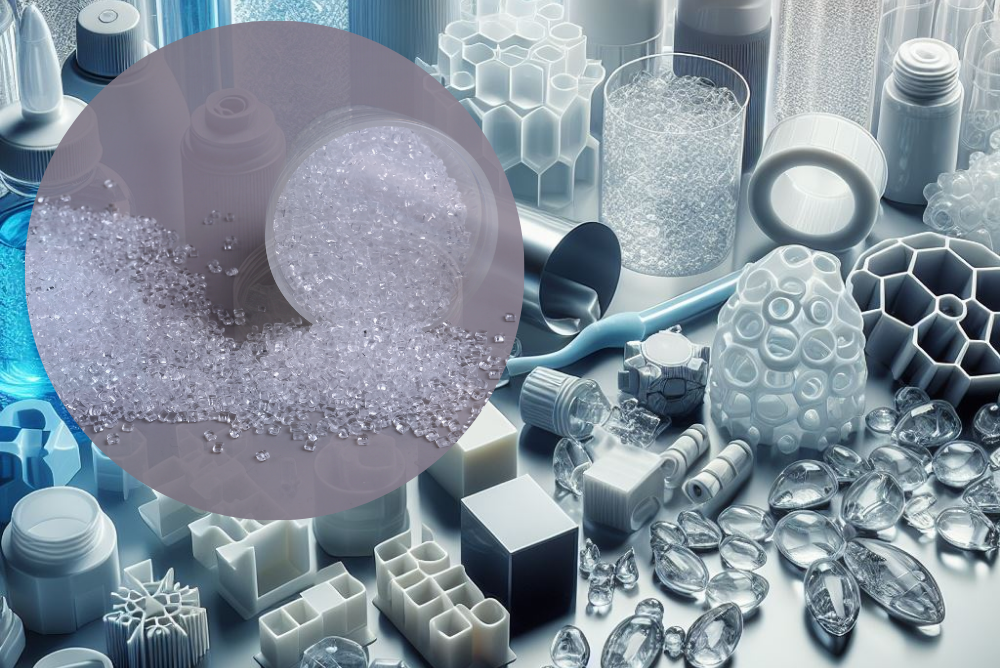
Polycarbonate resins are a highly versatile thermoplastic polymer with a wide range of applications across various industries. Known for their exceptional properties such as impact resistance, transparency, and heat tolerance, these materials are commonly used in the production of automotive parts, electrical components, medical devices, and construction materials. Whether you're a professional in the industry or just curious about plastics, understanding the key features and uses of polycarbonate resins can be very beneficial. This article explores their unique characteristics, common applications, and important considerations when selecting them.
Key Properties of Polycarbonate Resins
Polycarbonate resins stand out due to several remarkable properties that make them suitable for diverse applications. Here are some of the most notable ones:
- Flame Retardancy: These resins offer good fire resistance and meet multiple flammability standards, making them ideal for use in electrical enclosures and other safety-critical applications.
- Chemical Resistance: They resist many common chemicals like oils, greases, and diluted acids, which is why they’re often used in medical equipment, automotive parts, and chemical storage systems.
- Transparency: With high optical clarity, polycarbonate is frequently used in items where visibility is essential, such as windshields, safety goggles, and lenses.
- Impact Resistance: Known for their toughness, polycarbonate resins are resistant to breaking under heavy impact, making them perfect for bulletproof glass, helmets, and protective gear.
- Heat Resistance: They can withstand high temperatures, which makes them useful in electronics, automotive parts, and other heat-generating applications.
- Dimensional Stability: These resins have low shrinkage and maintain their shape well across different temperature ranges, ensuring accuracy in manufactured parts.
- Weather Resistance: Polycarbonate resins are UV-resistant and can retain their mechanical and optical properties even after long exposure to sunlight and harsh weather conditions.
Common Applications of Polycarbonate Resins
Due to their excellent properties, polycarbonate resins are widely used in the electronics sector. Some of the most common applications include:
- Manufacturing LED lighting fixtures, thanks to their light transmission capabilities.
- Creating protective cases and housings for smartphones, tablets, and laptops.
- Producing electrical connectors, terminal blocks, and printed circuit boards (PCBs).
- Designing switches, relays, and sockets for electronic devices.
Important Factors to Consider When Choosing Polycarbonate Resins
When selecting a polycarbonate resin for your project, it’s crucial to consider several factors that will influence performance and suitability:
- Mechanical Properties: Evaluate tensile strength, impact resistance, and flexural modulus to ensure the material can handle real-world stress.
- Chemical Exposure: Choose a resin that can withstand the chemicals your product may encounter during its lifecycle.
- Application Requirements: Determine if you need high impact resistance, UV stability, or flame retardancy based on your project's needs.
- Processing Needs: Different resins have varying melt flow rates, so choose one compatible with your manufacturing process—like injection molding or extrusion.
- Color and Aesthetics: Some resins come in a variety of colors, while others are more limited. Select one that matches your design goals.
Future Trends in Polycarbonate Resin Development
Sustainability is becoming a major focus in the development of polycarbonate resins. As environmental concerns grow, manufacturers are exploring eco-friendly alternatives, using renewable resources and improving recycling processes. Additionally, ongoing research aims to extend the lifespan of polycarbonate from production to disposal. Key trends include:
- Enhanced Performance: Researchers are working to improve heat resistance, scratch resistance, and overall durability of polycarbonate materials.
- Advanced Manufacturing Techniques: Innovations in polymerization, catalysts, and reactor designs are increasing efficiency and reducing costs. 3D printing is also opening up new possibilities for complex and customized designs.
- Lightweight Solutions: In industries like automotive and aerospace, there's a growing demand for lighter materials without sacrificing performance. Additives and reinforcements are being used to achieve this balance.
Why Buy from a Trusted Supplier?
Understanding the properties and applications of polycarbonate resins is just the beginning. To get the best results, it's essential to source them from a reliable supplier. Companies like Mid Continent Plastics specialize in providing high-quality recycled polycarbonate resins with decades of experience. They offer a wide range of options in different quantities, ensuring that businesses across industries can find the right material for their needs.
Automatic Laser Welding Equipment
Automatic Laser Welding Equipment,Laser Platform Welding Machine Equipment,Laser Beam Welding Machine,Automatic Sheet Welding Equipment
Herolaser , https://www.herolasermachine.com